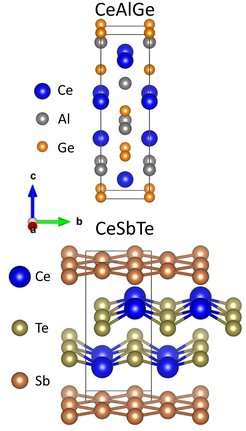Marie Skłodowska-Curie Fellow
Mário Moda Piva
Project: Tuning Topological Materials by hydrostatic Pressure and uniaxial Stress – TopoPress

One of the pillars of condensed matter research is the discovery of new phases with novel properties. Their understanding improves our physical knowledge and enables the development of new technologies. Recently, the discovery of topological phases in real materials [1] has driven the attention of the solid-state science community towards the study of topological materials, which have a high potential for industrial applications, such as quantum computers and spintronic devices. Topological phases in Ce-based materials are rather unexplored in the literature. The presence of Ce3+ ions gives rise to many complex behaviors, such as magnetism, Kondo effect and the importance of crystalline electrical fields. Their influence on, and interplay with, topological phases is not fully comprehended and may lead to new quantum states of matter. In particular, the presence of magnetism in topological materials has been reported as a fruitful route to enable the design of new spintronic devices [2]. In this regard, the main goal of this proposal is to study the relation between non-trivial topological phases and strong electronic correlations in Ce-based compounds. Therefore, hydrostatic pressure and uniaxial stress will be used to tune the magnetic correlations and the electronic bands, moving the band crossings responsible for the topological phases towards the Fermi energy in Ce-based compounds, such as CeAlGe and CeSbTe. Our findings will significantly enhance the knowledge in strongly correlated electrons systems and topological materials, two fundamental areas of condensed matter physics.
Max Planck Institute for Chemical Physics of Solids:
The Max Planck Institute for Chemical Physics of Solids (MPI CPfS) is located in Dresden, capital of Saxony, in the east of Germany. The city of Dresden provides an excellent environment to researchers with the presence of several libraries and many institutes and laboratories focused on condensed matter physics, such as the School of Science of the Technische Universität Dresden, the Helmholtz-Center Dresden-Rossendorf, the Leibniz Institute for Solid State and Materials Research Dresden, the MPI for the Physics of Complex Systems and the MPI CPfS. Furthermore, the postdoc network of the Max Planck Society presents an excellent environment for the scientific exchange between researchers of different fields from all MPI’s and also increases the scientific network.
The “Unconventional phases under extreme conditions” group led by Dr. Michael Nicklas, part of the Physics of Quantum Materials department, focuses in the study of strongly correlated and topological materials under extreme conditions, such as high pressure, high magnetic fields, uniaxial stress and/or ultra-low-temperatures. The group aims to tune novel materials into desired electronic properties, as superconductivity, large magnetoresistance, chiral anomaly and ultrahigh mobility. Moreover, the development and improvement of new experimental setups is also pursued, driven by the more arduous physical questions emerging at the edge of the condensed matter knowledge. Furthermore, the Physics of Quantum Materials department led by Prof. Andrew P Mackenzie hosts several research groups, which present a strong collaboration with each other and are composed of people with different research backgrounds from all parts of the world. Therefore, it is the perfect environment to assemble a fruitful scientific network.
Marie Skłodowska-Curie Actions (MSCA):
The Marie Skłodowska-Curie actions are financed by the European Union and aim to fund outstanding research projects in all scientific fields. Moreover, these actions also focus to enhance and improve the skills of excellent researchers at all career stages through mobility between countries and exposure to interdisciplinary scientific projects. The dissemination of the results is also a main concern of MSCA actions, which support outreach activities to improve the communication of the obtained scientific developments to different target audiences, not only experts in the field but also the broader public.
In particular, the Marie Skłodowska-Curie Individual Fellowships focus to enhance the future career prospects and to re-enforce professional maturity and independence of the researcher. The mobility to other countries greatly increases the collaborations network of the applicant. Moreover, the communication and dissemination of the researchers are boosted by sharing the results with different kinds of audiences. Therefore, these actions notably improve crucial skills for researchers, yielding huge impact in scientific careers, opening many doors for a future in academics or non-academics positions.

